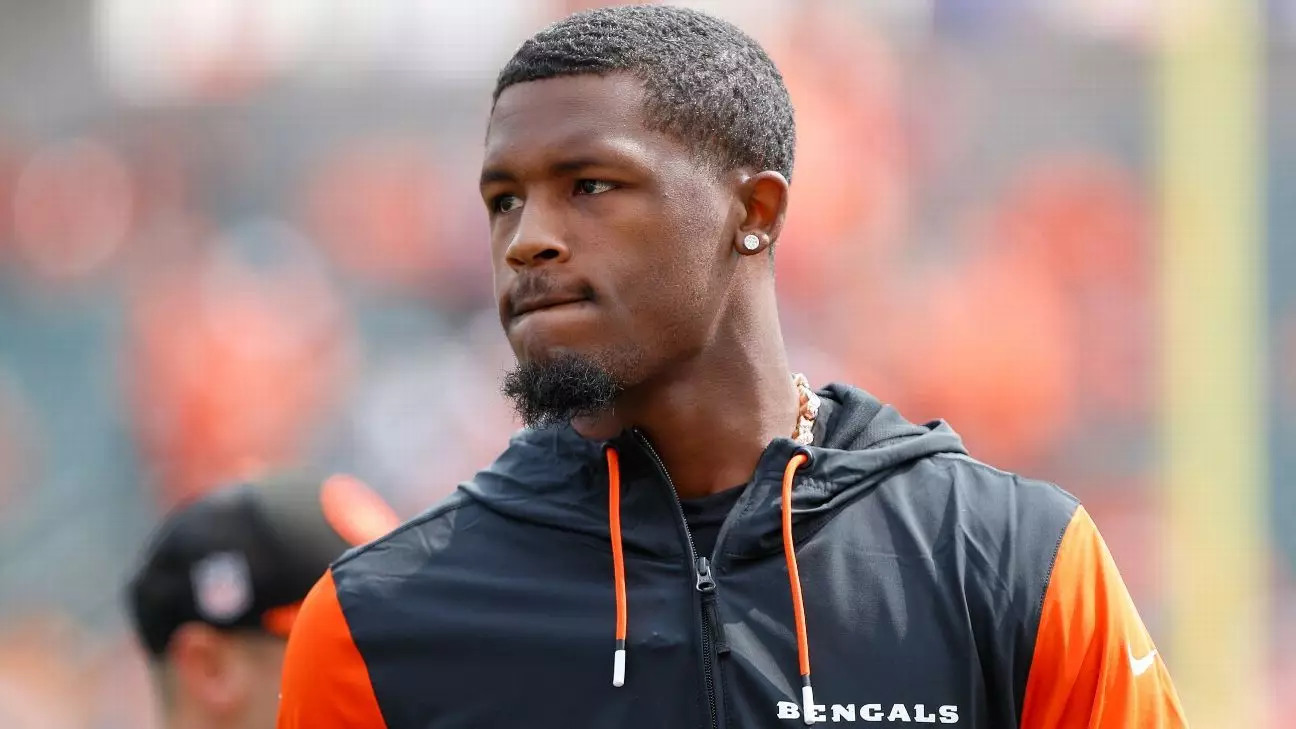Tee Higgins, the Cincinnati Bengals’ talented wide receiver, faces an uphill battle in public perception regarding his recent hamstring injury. After sustaining the injury in practice just days before the season opener, misunderstandings surrounding his commitment and contract status have overshadowed his genuine desire to contribute to the team. Higgins expressed his frustration in an interview, stating that rumors suggest he might be feigning an injury to leverage his contract situation. However, it’s critical to dissect the nuances involved, as the relationship between player performance, health, and contract negotiations can be complex and often misinterpreted by fans.
Higgins’ injury, which has sidelined him since September 5, has led to rampant speculation; however, he insists that his wellbeing should not be conflated with his contractual pursuits. The narrative that players might ordain their injuries to agitate negotiations often casts a shadow over genuine health concerns. Higgins, who is cautious yet passionate about his playing career, vehemently denies any ulterior motives, clarifying that the window for a contract extension has closed and that he is focusing solely on recovery.
The timeline of Higgins’ contract situation adds a layer of complexity to the narrative. Having played on a franchise tag and expressed a desire for a long-term deal over the past two seasons, there are palpable frustrations within his camp. Critically, his July 15 deadline meant that any long-term agreement was off the table until after the season’s conclusion, leaving no room for negotiations or misunderstandings.
This peculiar timing reveals the precarious balance players must maintain between their physical health and their professional careers. Higgins’ decision to sign the franchise tag was a calculated move as he expressed a commitment to delivering his best performance. The desire to focus on the season is normal for athletes, yet fans may misconstrue such circumstances, mistakenly assuming that injuries arise as tactics for negotiation or distraction.
Higgins’ comments expose the emotional toll that these misunderstandings have on athletes. He reflected on his commitment, stating, “I prepared myself to go out here and dominate,” only to be sidelined by an unexpected injury. The unforeseen nature of athletic injuries should lead to empathy rather than suspicion from the fan base. Injuries can strike at any moment, completely altering an athlete’s trajectory and impacting their teams’ performance.
A supportive locker room dynamic is vital during such periods. Bengals coach Zac Taylor has been clear about Higgins’ day-to-day evaluation while left guard Cordell Volson praised Higgins for his work ethic and commitment. The camaraderie highlighted within the team can often shield players from the external noise that misunderstandings create. However, the contradiction between a player’s resolve to return and the surrounding skepticism can be demoralizing.
With a history of battling injuries, including last season where he missed several games due to similar issues, Higgins shoulders not just the burden of individual performance but the weight of expectations from fans and the organization alike. His statement that he wants to return at full strength underscores the competitive nature of professional sports, where players are expected to give their utmost. “I want to go out there and give my teammates a hundred percent of Tee Higgins,” he emphasized, reinforcing his intention to contribute meaningfully to the Bengals’ offense.
As Higgins navigates through this particular rough patch, one can only hope that discussions about injuries within professional sports evolve into constructive dialogues rather than baseless accusations. The sport demands a high level of physicality; it is a realm where pain and sacrifice are inextricably woven into success.
As the Bengals prepare for a grueling season, the narrative around Tee Higgins serves as a reminder of the complex relationships between injuries, performance, and contract negotiations. Recruit empathy towards athletes’ physical struggles, especially when they are committed to returning better than ever. Fans should recognize that behind the numbers and statistics lies a commitment that deserves support rather than skepticism.



Leave a Reply